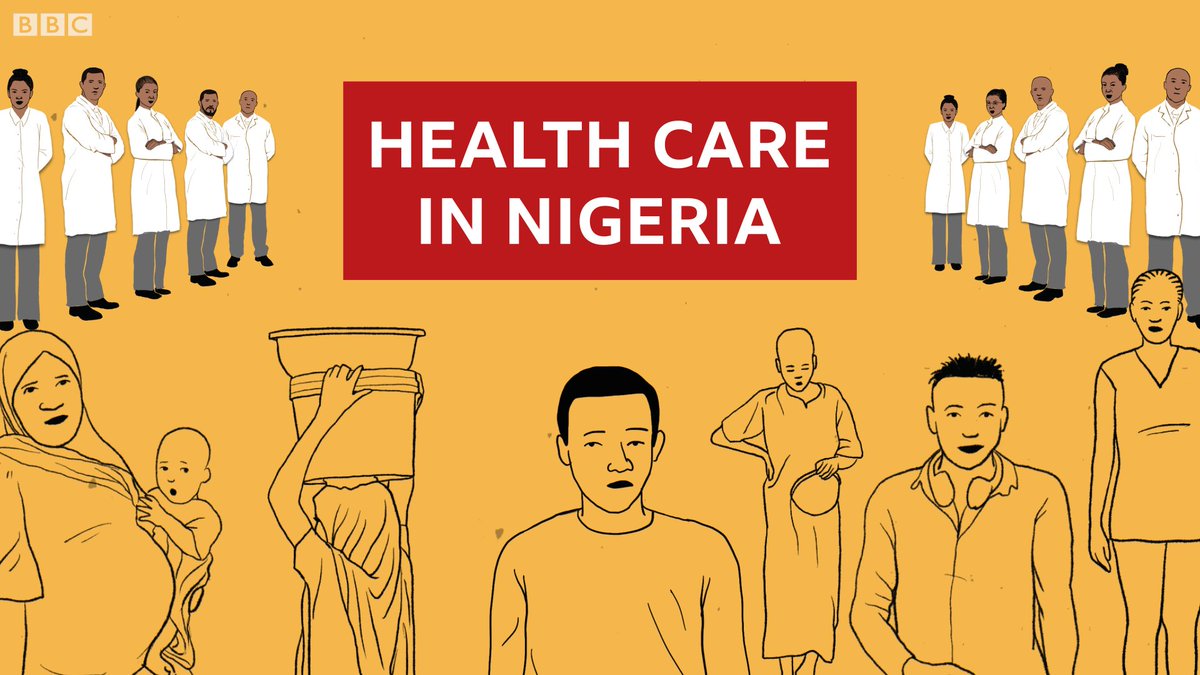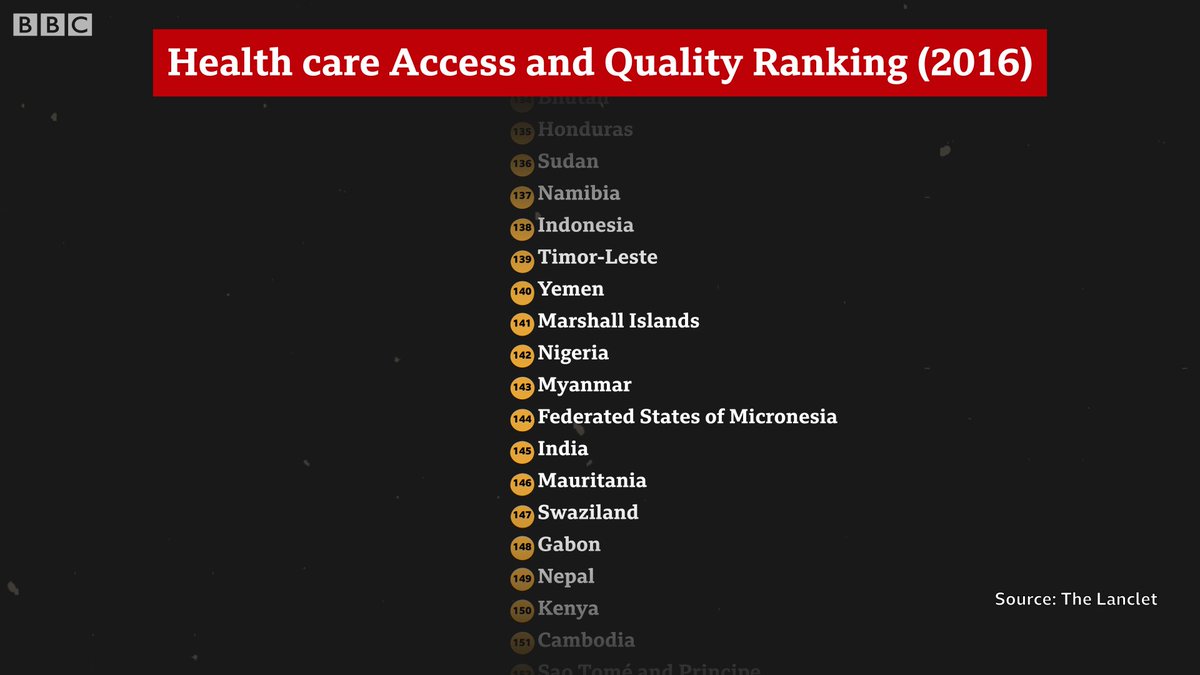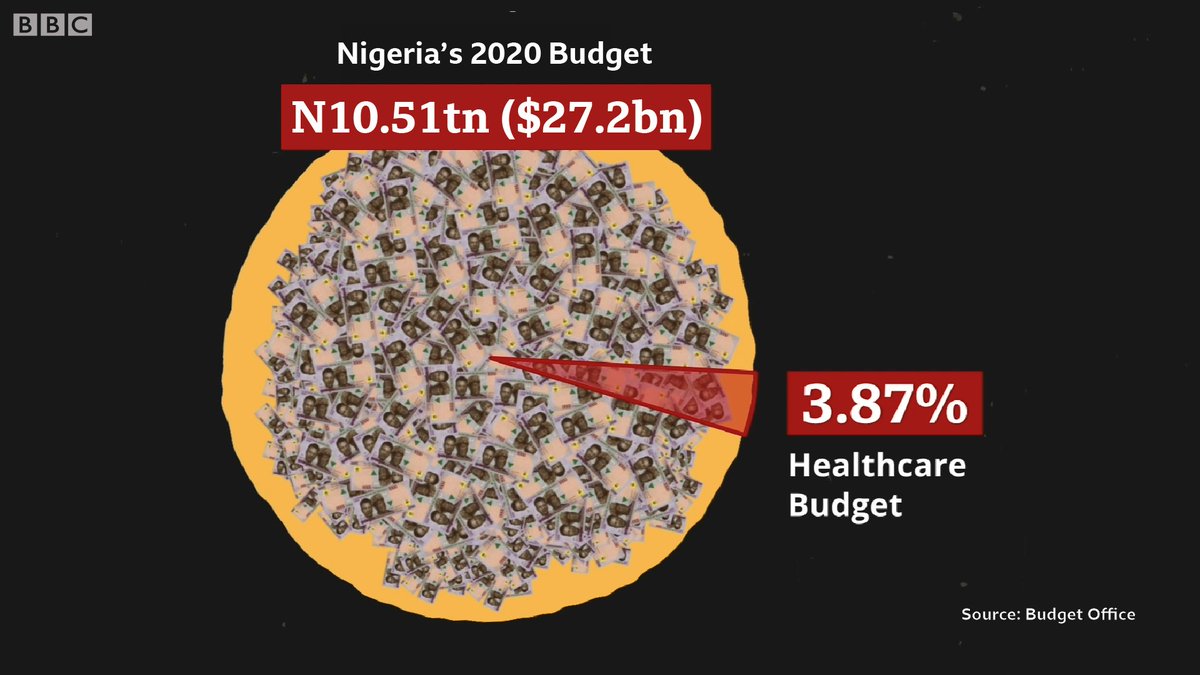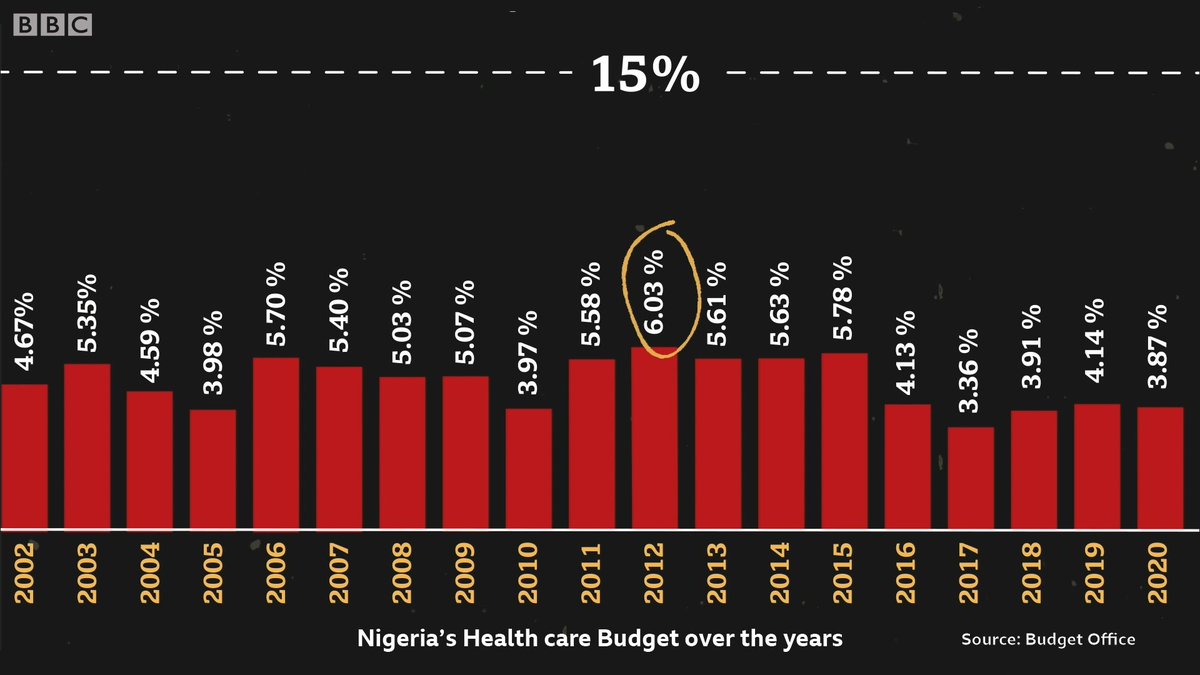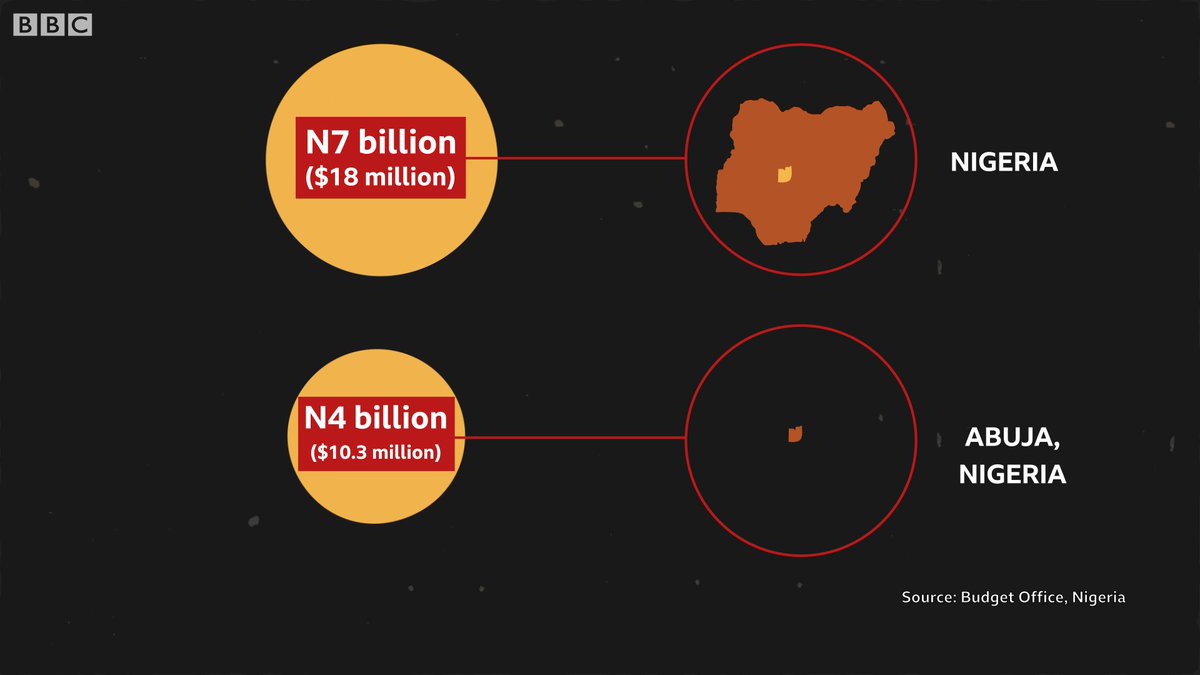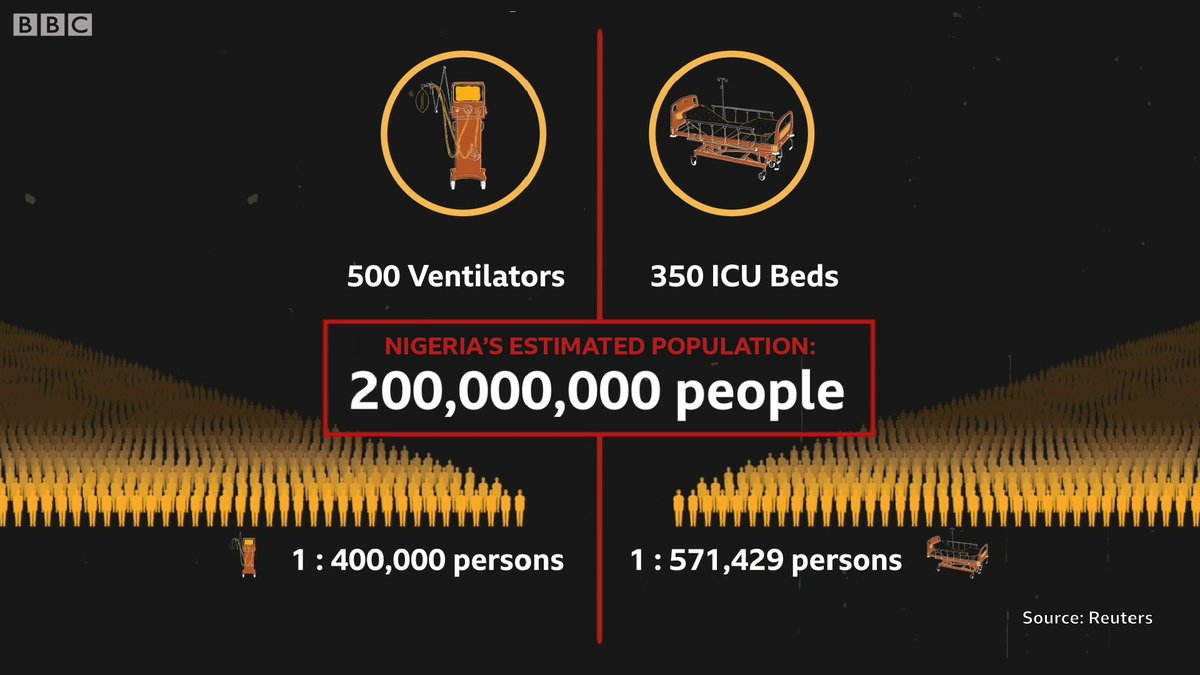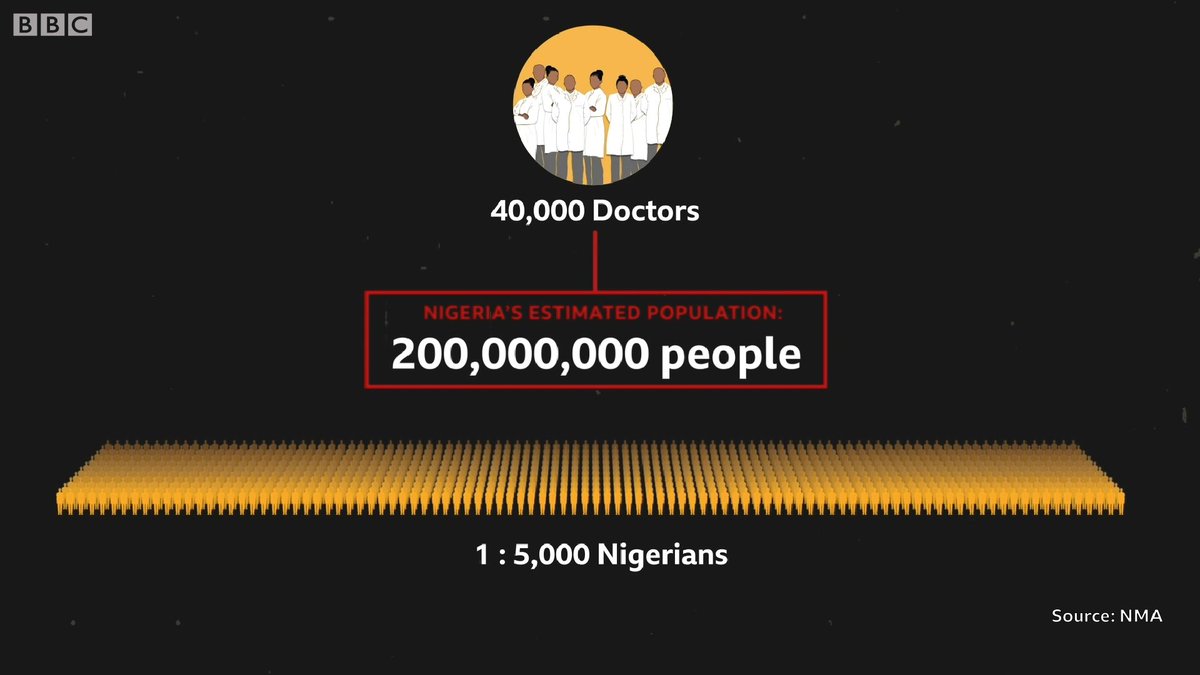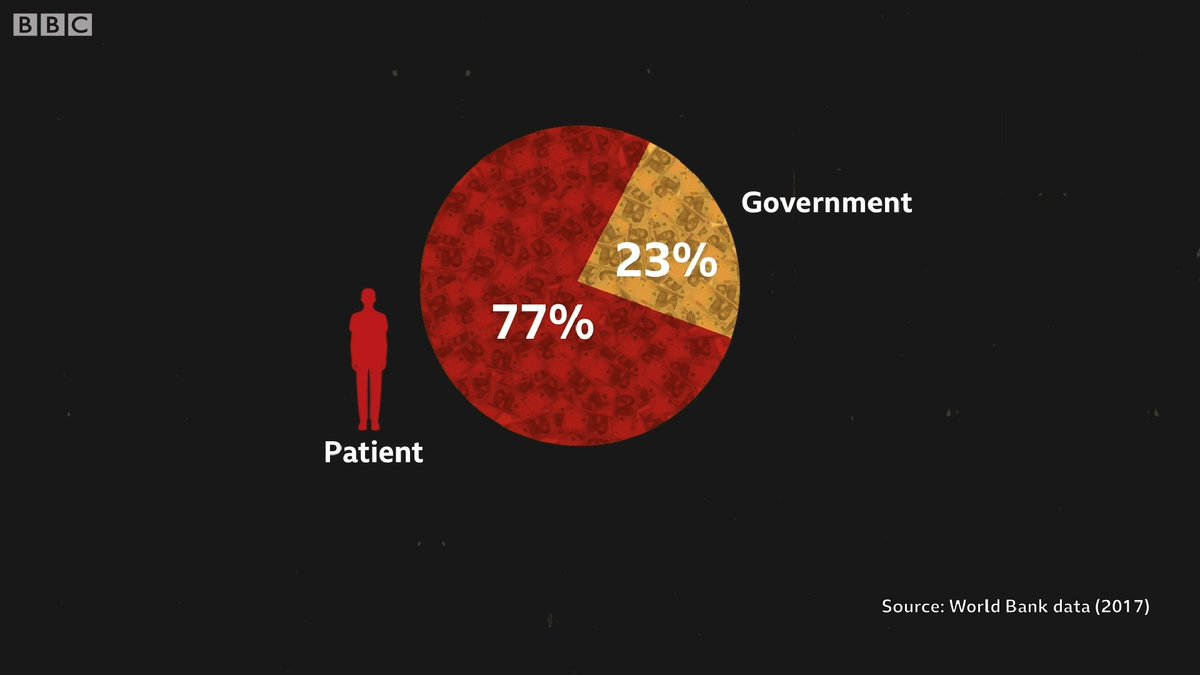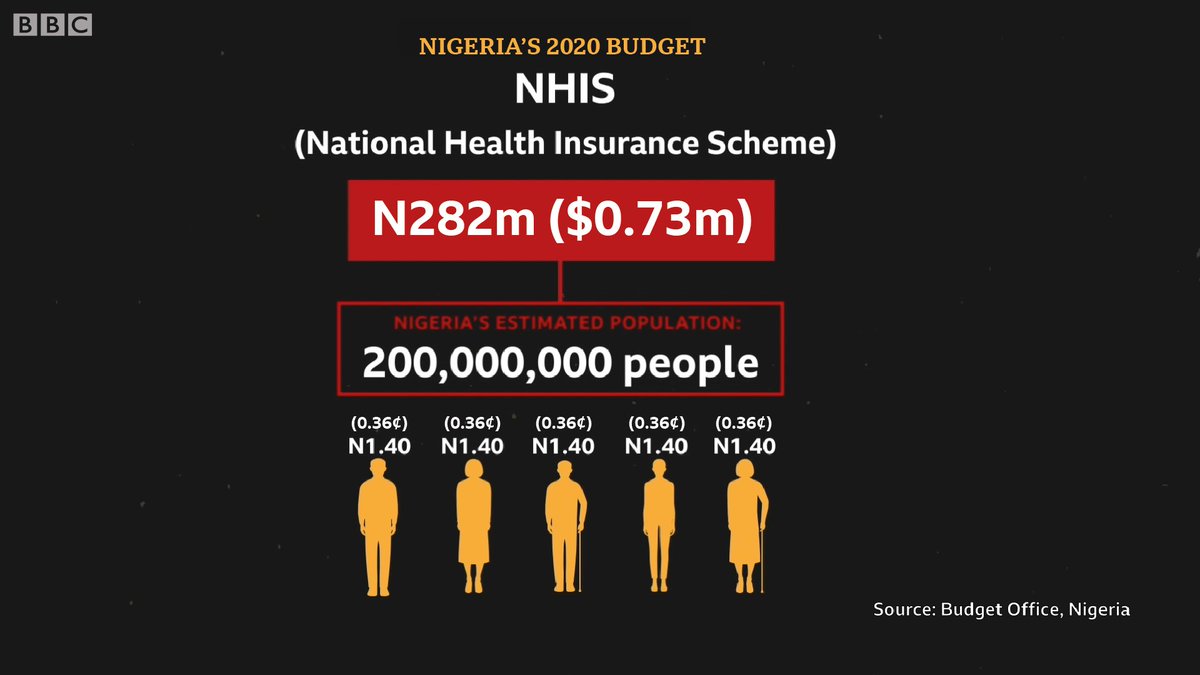We need to first take a look at Nigeria’s health profile.
Nigeria has one of the lowest life expectancy rates in the world.
It is also among the worst five globally in infant mortality rate, maternal mortality rate, and HIV infections.
In an interview with @bbcnewspidgin, @DrZobo said "there are some hospitals that even lack gloves and face masks.”
In 2018, it was estimated that 12 doctors from Nigeria were registered every week in the UK, with more than 5,000 Nigerian doctors already working there.
Until April 2020, health workers’ hazard allowance in public hospitals was N5,000.
Tens of thousands of Nigerians leave the country every year to seek medical treatment abroad.
The reason could be related to the absence of proper facilities and treatments.
He has drawn criticism for traveling abroad for medical treatments since he assumed office after promising to end "medical tourism" in 2015.
Development consultant Dada Alamutu says health care costs are so high that "even in the public hospitals these days, you have to pay."
Beyond the pandemic, Nigeria has a very long way to go.
Watch the full video here:
Originally aired on @gistnigeriatv
Thanks to the interviewees and journalists who contributed @DrZobo @JOluwadero @zeezeecruise, Dada Alamutu, Innocent Ujah @xtieejiogu @adisaabayomi @nutprince.

